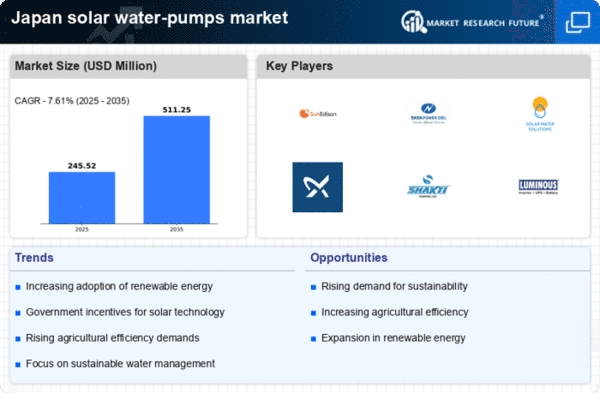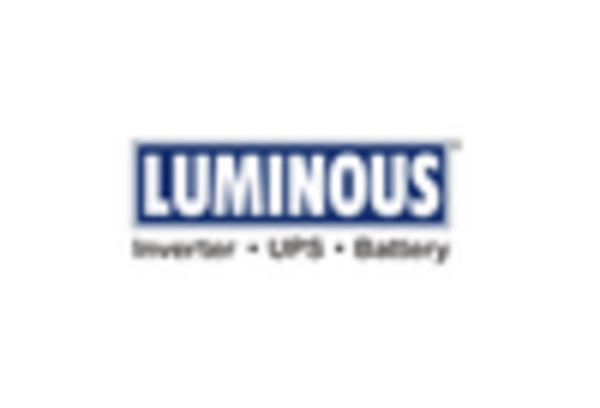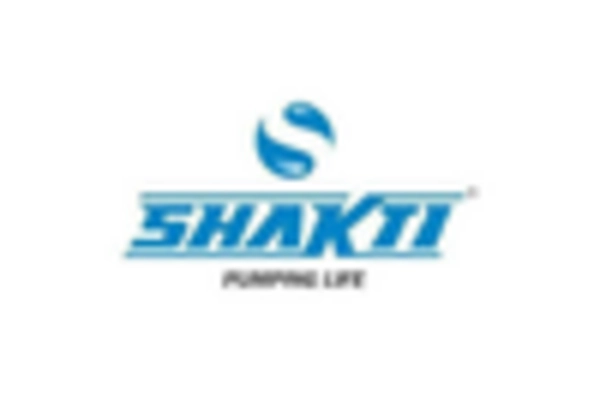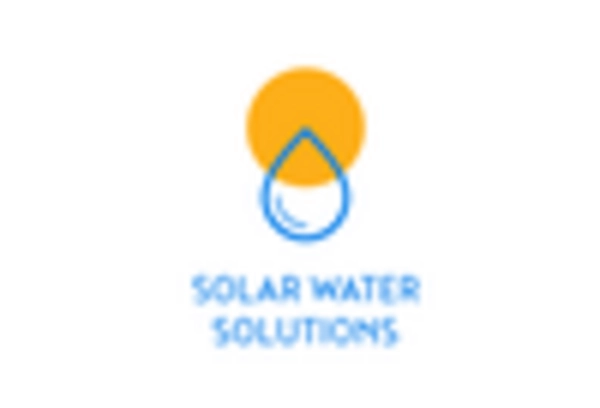Rising Energy Costs
The solar water-pumps market is being propelled by the escalating costs of conventional energy sources. As energy prices continue to rise, farmers and businesses are increasingly seeking alternative solutions to mitigate expenses. Solar water-pumps offer a viable option, as they harness renewable energy, thereby reducing reliance on grid electricity. In Japan, energy costs have surged by approximately 15% over the past five years, prompting a shift towards more sustainable energy solutions. This trend suggests that the solar water-pumps market could see a substantial increase in adoption rates as users aim to lower their energy bills while contributing to environmental sustainability.
Technological Innovations
The solar water-pumps market is benefiting from ongoing technological innovations that enhance the efficiency and reliability of solar-powered systems. Advances in photovoltaic technology and battery storage solutions are making solar water-pumps more accessible and effective for various applications. For instance, the introduction of smart irrigation systems that integrate IoT technology allows for real-time monitoring and management of water usage. This trend indicates that the solar water-pumps market could expand as users seek more sophisticated solutions to optimize water resources. The potential for improved performance and lower maintenance costs may further drive adoption in both agricultural and industrial sectors.
Increased Agricultural Demand
The solar water-pumps market is experiencing growth due to the rising demand for efficient irrigation solutions in agriculture. As Japan's agricultural sector seeks to enhance productivity, the adoption of solar water-pumps is becoming more prevalent. These systems provide a sustainable and cost-effective means of irrigation, particularly in rural areas where traditional power sources may be limited. The market data indicates that the agricultural sector accounts for approximately 30% of the total water usage in Japan, highlighting the potential for solar water-pumps to significantly reduce operational costs. Furthermore, with the increasing focus on food security, the integration of solar technology in farming practices is likely to expand, thereby driving the solar water-pumps market further.
Government Policy and Regulation
The solar water-pumps market is influenced by favorable government policies aimed at promoting renewable energy. Japan's commitment to reducing greenhouse gas emissions and increasing the share of renewable energy in its energy mix has led to supportive regulations for solar technologies. The government has set ambitious targets, aiming for renewable energy to account for 24% of the total energy supply by 2030. This regulatory environment encourages investments in solar water-pumps, as stakeholders seek to align with national sustainability goals. The market is likely to benefit from continued government support, which may include subsidies and tax incentives for adopting solar technologies.
Environmental Sustainability Initiatives
The solar water-pumps market is gaining traction due to the increasing emphasis on environmental sustainability in Japan. As awareness of climate change and resource depletion grows, both consumers and businesses are prioritizing eco-friendly solutions. Solar water-pumps align with these sustainability goals by reducing carbon footprints and conserving water resources. The market data suggests that approximately 70% of consumers in Japan are willing to invest in sustainable technologies, indicating a strong market potential. This shift towards environmentally responsible practices is likely to bolster the solar water-pumps market, as stakeholders recognize the long-term benefits of adopting renewable energy solutions.
















